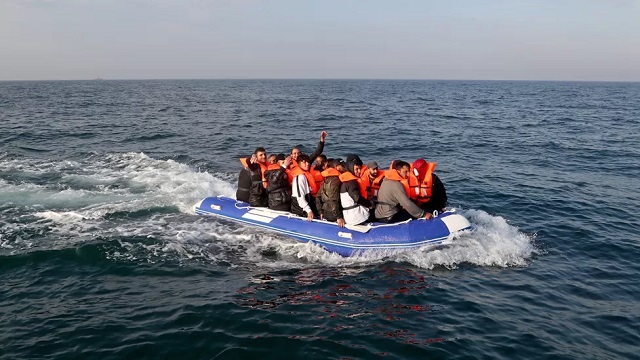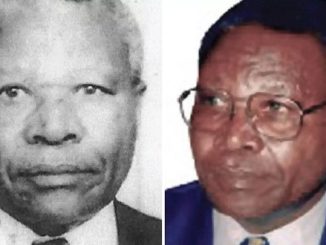
The Illegal Migration Bill is set to become law after the government won a final series of votes in the Lords.
The legislation is central to the prime minister’s pledge to stop small boats crossing the English Channel.
Under the bill, the home secretary has a legal duty to detain and remove anyone entering the UK illegally.
In a late-night debate in the House of Lords, peers rejected attempts to reinsert time limits on child detention and modern slavery protections.
The bill will now go for royal assent and become law.
On Tuesday, the UN released an unusually critical statement, claiming the bill breaks the UK’s obligations under international law.
In a joint statement the UN human rights chief Volker Turk and the UN refugees head Filippo Grandi said the bill “will have profound consequences for people in need of international protection”.
“This new legislation significantly erodes the legal framework that has protected so many, exposing refugees to grave risks in breach of international law,” Mr Grandi said.
Legal uncertainty
As it stands it is unclear what will happen to people coming to the UK on small boats in the coming months, according to BBC home and legal correspondent Dominic Casciani.
The bill places a legal duty on the government to detain and remove those arriving in the UK illegally, either to Rwanda or another “safe” third country. But there are no similar return deals with any other countries, our correspondent said.
And the Rwanda plan was ruled unlawful by the Court of Appeal last month, although ministers are challenging the judgement.
On Tuesday, an accommodation barge arrived in Portland Port, Dorset, where it is due to eventually house 500 asylum seekers.
The first asylum seekers are expected to board the Bibby Stockholm later this month, despite protests from locals.
The prime minister’s official spokesman said that the government wants to “open more” accommodation facilities for asylum seekers.
Parliamentary ping-pong
For weeks, the government was locked in a battle over the final shape of the bill with the Lords, where a cross-party group of peers made repeated amendments.
In the last few days, the bill passed between the House of Commons and House of Lords three times, in a process known as parliamentary ping-pong.
Former Prime Minister Theresa May led a series of backbench rebellions in the Commons over plans to restrict access to the UK asylum system for victims of modern slavery.
Under the bill the duty to remove anyone who comes to the UK illegally applies to victims of trafficking and slavery, accompanied children and unaccompanied children as soon as they turn 18.
Ms May, who as home secretary introduced the Modern Slavery Act, said the bill “will enable more slave drivers to operate and make money out of human misery”.
The government argued that anyone identified as a potential victim of modern slavery would be returned home or to another “safe country away from those who have trafficked them”.
However, on Monday Mrs May did not vote for an exemption from the bill for suspected victims of slavery to allow them to access support and co-operate with criminal proceedings against traffickers.
The legislation would also scrap existing legal caps on how long those entering the UK illegally can be held ahead of being deported.
MPs and peers had attempted to reinsert the three day-limit on how long children can be detained, as well as the 24-hour maximum for children unaccompanied by an adult. But the plans were dropped after they were again rejected in the House of Commons.
The government had already made concessions on the detention of unaccompanied children, who will be granted immigration bail after eight days, and on pregnant women, for whom the current limit of 72 hours detention will be retained.
The end of the stand-off between peers and MPs paves the way for the bill to receive royal assent – when the King formally agrees to make the bill into an Act of Parliament, or law.
During the Lords debate, Home Office minister Lord Murray of Blidworth said the number of small boat arrivals had “overwhelmed” the UK’s asylum system and that accommodation was costing taxpayers £6m per day.
“With over 45,000 people making dangerous Channel crossings last year this is simply no longer sustainable,” he told peers, adding it was “only right” that the “business model” of human traffickers be broken.
He urged the Lords to “respect the will of the elected House and the British people by passing this bill”.
Labour’s shadow home secretary Yvette Cooper called he new law “a con which will only make the Tories asylum chaos worse”.
“The asylum backlog is a record high, the number of people in hotels is still increasing, the Rwanda plan is unravelling and June boat crossings were higher than last year,” she said.
Source: bbc.co.uk






Be the first to comment